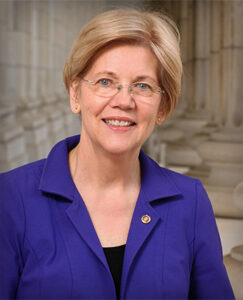Congress has scrutinized the work of financial regulators for their work in supervising Silicon Valley Bank and Signature Bank. In a March 20 letter, House Committee on Financial Services Chair Patrick McHenry (R-N.C.) and Senate Banking Committee Ranking Member Tim Scott (R-S.C.) requested Federal Reserve Chair Jerome Powell provide a timeline of events of the Fed’s “lending, supervisory and examination activity for the last two years,” regarding the two banks.
Some Democrats have attributed the failures of Silicon Valley Bank and Signature Bank to a 2018 bill that lifted the size of banks to face tightened capital liquidity requirements to $250 billion from $50 billion. Democrat Sens. Elizabeth Warren of Massachusetts and Katie Porter of California introduced a bill last week repealing the loosened requirements.

The bill could prove challenging to pass as moderate Democrats who supported the 2018 overhaul haven’t explicitly supported the proposal. Last week, U.S. Rep. Dean Phillips (DFL-Minn.), who was elected in the months following the overhaul, attributed the collapses to internal leadership failures, not the bill. “These are unique circumstances, and we also have to recognize that we have perverse incentives,” Phillips said March 16 following a roundtable in Eden Prairie, Minn. “It is the responsibility of CEOs to grow their businesses, generate returns for shareholders, and that often means taking risks to do so. In the case of banking, the job of banks is to mitigate risk. So we have to look at this in a thoughtful, reasonable way, not do any knee-jerk reactions.”
Warren, a member of the Senate Banking Committee, has expressed support for raising the FDIC’s $250,000 deposit insurance cap, potentially into the millions. She criticized Federal Reserve Chair Jerome Powell on NBC’s “Meet the Press” March 19. “He has had two jobs, one is to deal with monetary policy, one is to deal with regulation. He has failed at both,” she said. “I don’t think he should be chairman of the Federal Reserve.”
Protecting smaller banks from the impact of the collapses has gained bipartisan support. Senate Banking Committee Chair Sherrod Brown (D-Ohio) said changes to deposit insurance policy must include small businesses and workers. “That includes holding accountable the executives who ran this bank into the ground and the regulators tasked with overseeing them, and it includes working to reform our laws to better protect workers, small businesses, and taxpayers from corporate greed,” he added.
On March 17, Sen. James Lankford (R-Okla.) pressed Yellen on how to keep large depositors from moving from smaller banks to the largest banks based on those differences. “That’s certainly not something that we are encouraging,” Yellen said. “That is happening because depositors are concerned about the bank failures that have happened and whether or not other banks could fail.”
